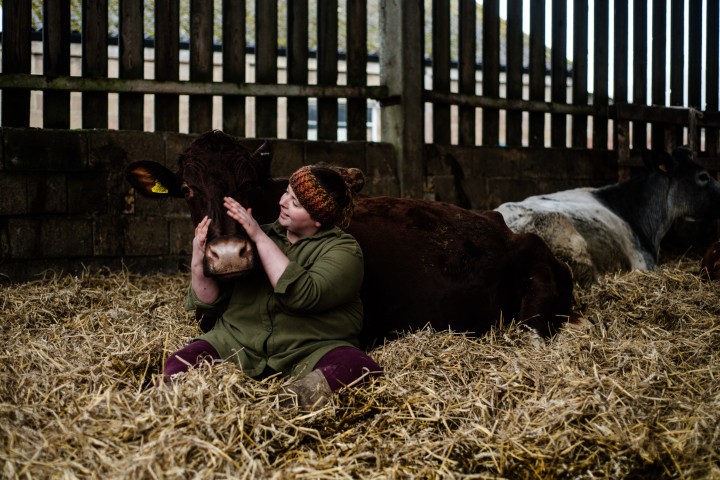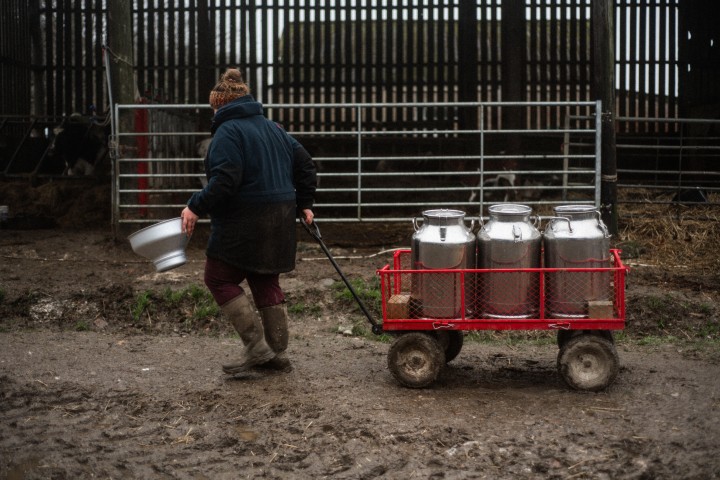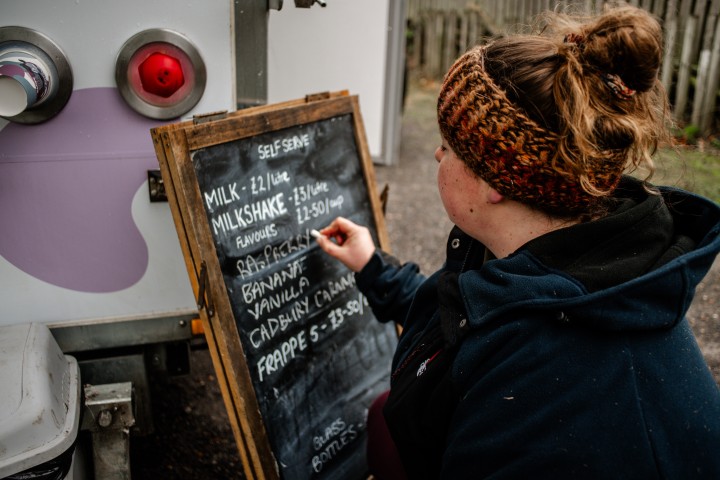“For us, the hardest shift was not feeding the cows concentrates twice a day. It was a culture change for us and our cows. The cows came from our last farm, so they were used to being a bit spoiled, and then we expected them to eat the grass in the fields here. It feels like you are doing a hardship to your cows at first, but ours are now absolutely fine just having forage, herbs and minerals. Then you see the new species in the grass and the hedgerows flourishing with flowers and berries. That’s so rewarding and makes you want to persevere.”
Working in Kent, climate resilience and ensuring the farm is able to withstand extreme weather conditions is a priority. Florence says the climate is “closer to French than English”, and one reason they're establishing herbal leys is to ensure there are deep-rooted plants able to withstand long dry periods in the grazing.
Climate change has made itself much more visible in the area over the past few years. “In 2022, it didn’t rain from April until September, and it got above 40 degrees on some days,” Florence says. “I think we’re going to have really dry summers in the future. Vineyards are going up in Kent every year because we’ve got the climate for it, and we also have Kentish fruit like peaches and apricots now. Drought is one of our biggest threats here.”
“Sometimes issues like carbon and the climate crisis seem too big an issue which we can never do anything about," she says ."It can feel like it’s never going to get better or something that only the people with the most power in the world can tackle. But we can all focus on our little corner of the world and see nature move back in and that area becoming alive again. It makes you feel better, and collectively, it could make a massive difference.”
Florence is passionate about supporting and extolling the virtues of small-scale, British family farms, but to make Chilton Farm viable, diversification has been necessary. Farm buildings around the courtyard have been turned into three cottages rented out as a B&B and a communal breakfast room.





